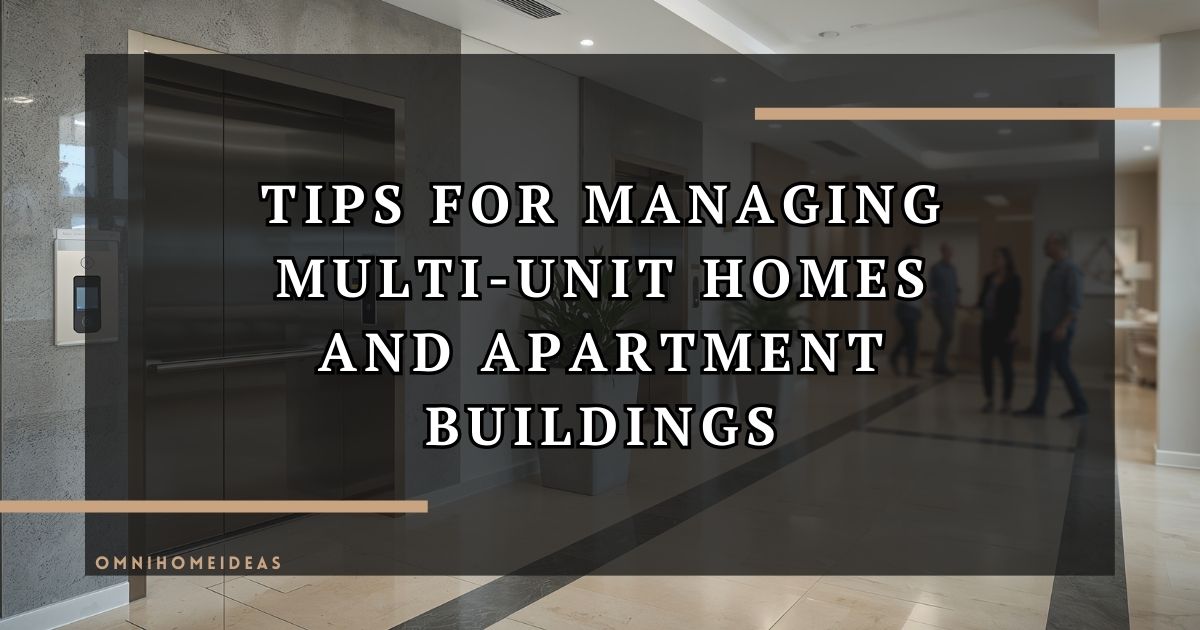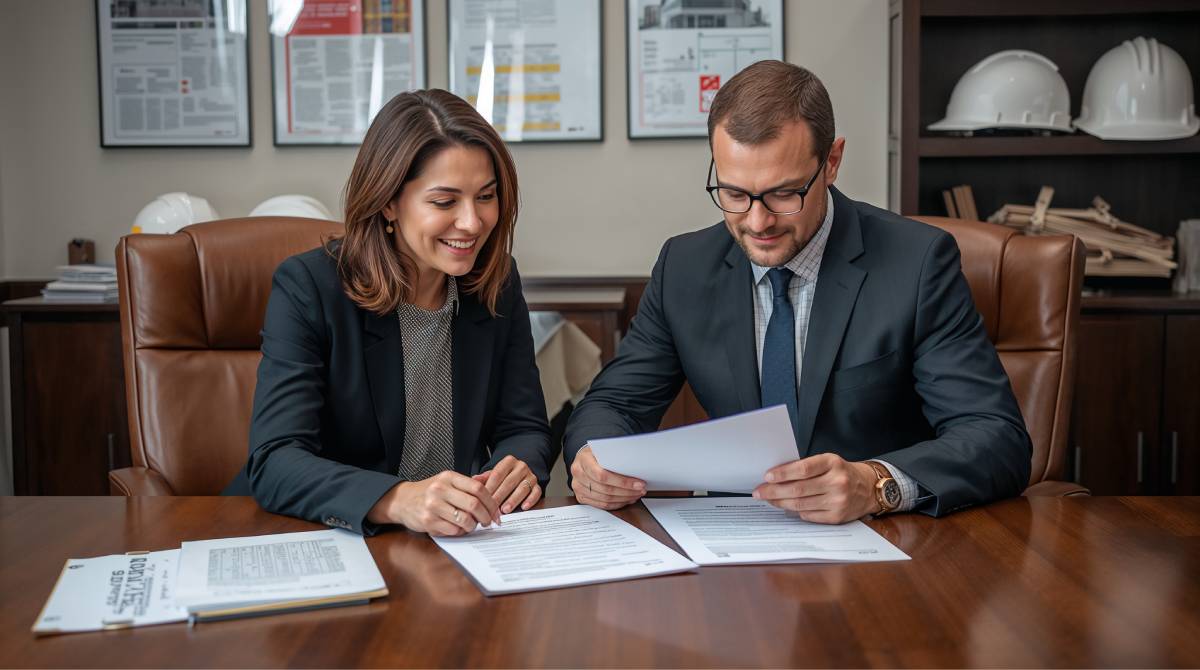How many times have you walked into a building where the walls are outdated, the lifts seem to be on the brink of breaking down, or the walkways are covered in dirt and debris? These issues not only create a poor first impression, but can also harm the overall experience for residents.
Managing a multi-unit home or apartment building comes with its fair share of challenges. However, when properly managed, it can be a place where residents feel comfortable, safe, and proud to call home. In this article, we’ll explore a few essential tips for managing multi-unit buildings that ensure your building thrives for years to come.

Understanding the Role of a Property Manager
Property management is essential for keeping any multi-unit building running smoothly. Whether a property manager, a Homeowners Association (HOA), or a management company handles it, their primary role is to ensure the property functions well on a day-to-day basis. Key responsibilities include:
- Overseeing building maintenance: Ensuring that common areas and facilities are well-maintained and addressing repairs quickly.
- Managing tenant relationships: Serving as the main point of contact for tenants, addressing their concerns, and fostering positive community relations.
- Handling rent collection and finances: Ensuring timely rent collection and managing the property’s finances effectively.
- Resolving disputes: Mediating conflicts between tenants or between tenants and the property owner.

Different property management structures whether self-managed, HOA-managed, or professionally managed condos come with unique advantages and challenges. Understanding these forms of condominium management allows property managers to make informed decisions about the best approach for their buildings.
Building Effective Communication with Residents
Clear and transparent communication is key to maintaining resident satisfaction in any multi-unit building. When residents feel informed and heard, they are more likely to stay content and engaged with the community. On the other hand, poor communication can lead to confusion, frustration, and even tenant turnover. Here are some practical methods for fostering effective communication:
- Email newsletters: Regularly update residents on important building news, upcoming events, or maintenance schedules.
- Tenant portals: Provide an online portal where residents can easily access important information, submit maintenance requests, and stay updated on building issues.
- Community meetings: Hold regular meetings to encourage feedback, address concerns, and keep everyone on the same page.

When complaints arise, always respond quickly and professionally. Addressing issues promptly and showing empathy helps build trust and positive relationships with residents. Lastly, keep residents informed about building changes, upcoming maintenance, or emergency protocols. Regular updates help prevent misunderstandings and create a more harmonious living environment.
Maintenance and Repairs
Preventive maintenance is critical for keeping a multi-unit building in top condition. Regular inspections of plumbing, electrical systems, and common areas can help identify small issues before they turn into costly repairs. Establishing a routine maintenance schedule ensures that the building remains safe, functional, and comfortable for residents.

For emergency repairs, it’s essential to have clear protocols in place. Maintain a list of trusted contractors who can respond quickly to urgent issues, such as plumbing leaks or electrical failures. Having a reliable emergency contact system ensures that repairs are handled swiftly, minimizing disruption for residents.
When deciding between in-house staff and outsourcing, weigh the pros and cons. In-house maintenance teams offer quick response times and more control over the process, but outsourcing can provide specialized expertise and reduce overhead costs. Both options require careful planning to meet the building’s needs effectively.
Lastly, sustainable practices are becoming more important in property management. Consider energy-saving upgrades like LED lighting, water conservation efforts, and waste reduction initiatives to improve both the building’s efficiency and its environmental footprint.
Financial Management
A well-organized budget is essential for managing routine expenses and unexpected costs. It ensures that the building operates smoothly without financial strain. Creating a reserve fund for unexpected repairs or major renovations is crucial to avoid disruptions.

Efficient rent collection can be streamlined by offering online payment options and setting clear guidelines to ensure timely payments. Also, regular financial reporting is vital to track income and expenses that can help property managers stay on top of the building’s financial health and make informed decisions that keep the property profitable.
Legal and Regulatory Compliance

Understanding tenant rights is essential for any property manager. It’s crucial to follow local, state, and federal laws, including fair eviction procedures and discrimination laws, to ensure compliance and avoid legal issues. Regularly reviewing and adhering to building codes and safety regulations is also vital. Property managers must ensure the building meets fire codes, electrical standards, and other safety requirements to protect both residents and the property.
Endnote
Managing a multi-unit building demands attention, consistency, and adaptability. When you stay proactive and responsive, you create a positive environment where residents feel valued and the property thrives. Approach each challenge as an opportunity to strengthen your community and build long-term success through effective property management.

